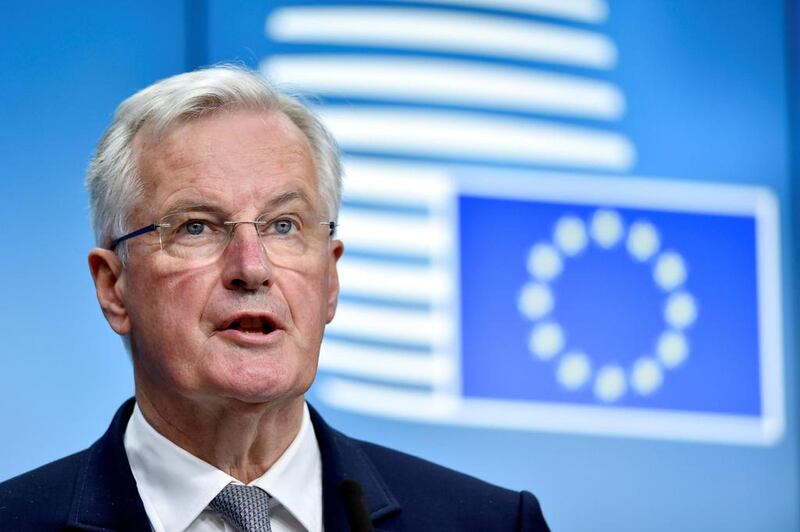PARIS // Britain was plunged into political turmoil on Friday after prime minister Theresa May’s Conservative Party lost its parliamentary majority in a snap election just days before negotiations on leaving the EU were set to start.
The European Union’s stance on Brexit and the timetable for the talks are clear, the bloc’s chief negotiator said on Friday, adding the negotiations should only start when Britain is ready.
“Brexit negotiations should start when UK is ready; timetable and EU positions are clear. Let’s put our minds together on striking a deal,” said Michel Barnier.
Mr Barnier had previously set a timetable of talks starting in the week beginning June 19, with agreement on initial issues by autumn of this year and a provisional Brexit deal in October 2018.
Britain is set to leave the EU at the end of March 2019 after Mrs May started the formal process on March 29 of this year.
But EU budget commissioner Guenther Oettinger said Mrs May was now likely to be a “weak” partner, when what the EU wants is a leader strong enough at home to reach a deal.
“The British need to negotiate their exit, but with a weak negotiating partner, there is a danger that the talks are bad for both parties,” Mr Oettinger told German radio.
Mr Oettinger, who is Germany’s EU commissioner, added that the EU “stands ready” for Brexit talks, “but the next few hours or days will indicate if the other negotiating party can even begin talks because without a government, there can be no negotiations.”
Mrs May had called the snap election in an attempt to extend her majority and strengthen her position in Brexit negotiations, but it backfired spectacularly after she failed to win enough seats to form a Conservative government.
Manfred Weber, the head of the European Parliament’s largest group and an ally of German chancellor Angela Merkel, said Mrs May had caused “chaos”.
“EU is united, UK is deeply split. PM May wanted stability but brought chaos to her country instead,” tweeted Mr Weber, who leads the centre-right European People’s Party.
“The clock is ticking for Brexit. Therefore the UK needs a government soon. The date for the beginning of negotiations is now unclear.”
European Parliament Brexit pointman Guy Verhofstadt compared the British outcome to former British prime minister David Cameron’s ill-fated decision to call last year’s Brexit referendum.
“Yet another own goal, after Cameron now May will make already complex negotiations even more complicated,” Belgian ex-prime minister Verhofstadt said.
When the talks do begin, there could be a very different approach from the “hard Brexit” advocated by May that would involve leaving Europe’s single market and curbing European immigration.
Mrs May has also said she is prepared to walk away from the talks if the EU pushes on key points including an exit bill of €100 billion.
“What the UK asks for might not be quite as hard, quite as tough as she was asking for before. We might see a softening of the stance in response to this election result,” said Simon Hix, politics professor at the London School of Economics.
“The terms of us leaving are so much more up for grabs than they were before,” he said.
His LSE colleague Paul Kelly said the result would weaken Mrs May’s hand in Brussels, where she is due to attend a summit on June 22 and 23.
“Merkel will notice that, Macron will notice that. Everybody will notice that and that changes the dynamic,” Mr Kelly said. “She has to go and ask for things now and they can say ‘well we’ll see’.”
* Agence France-Presse





